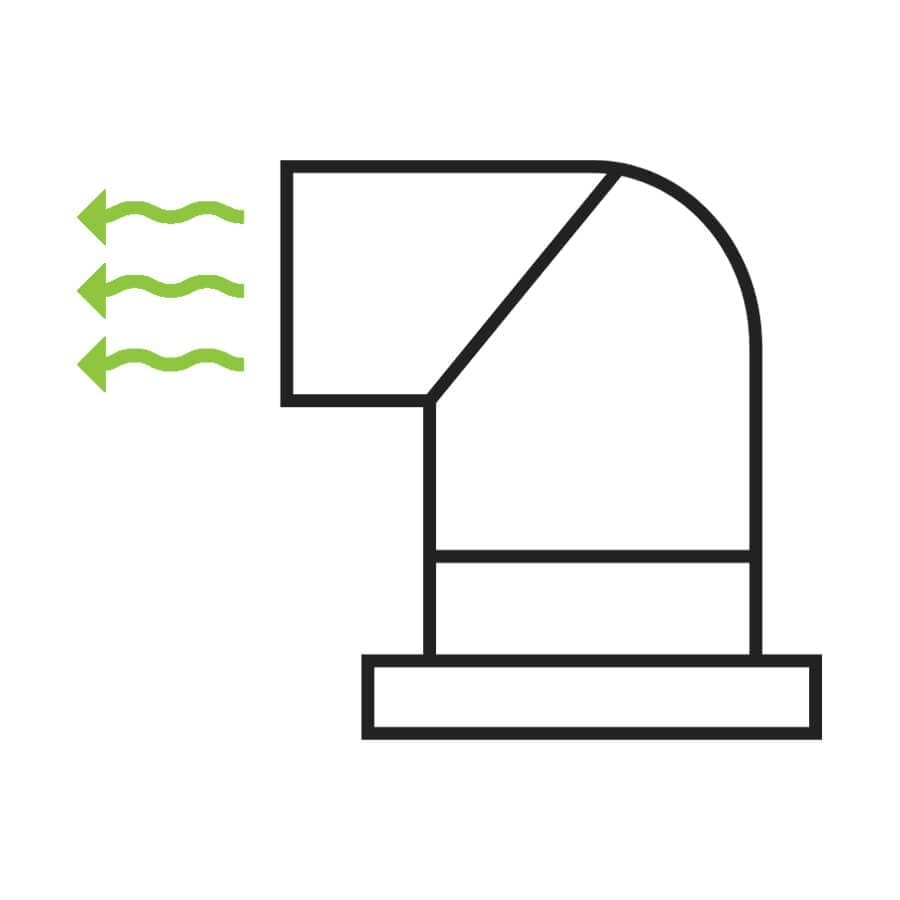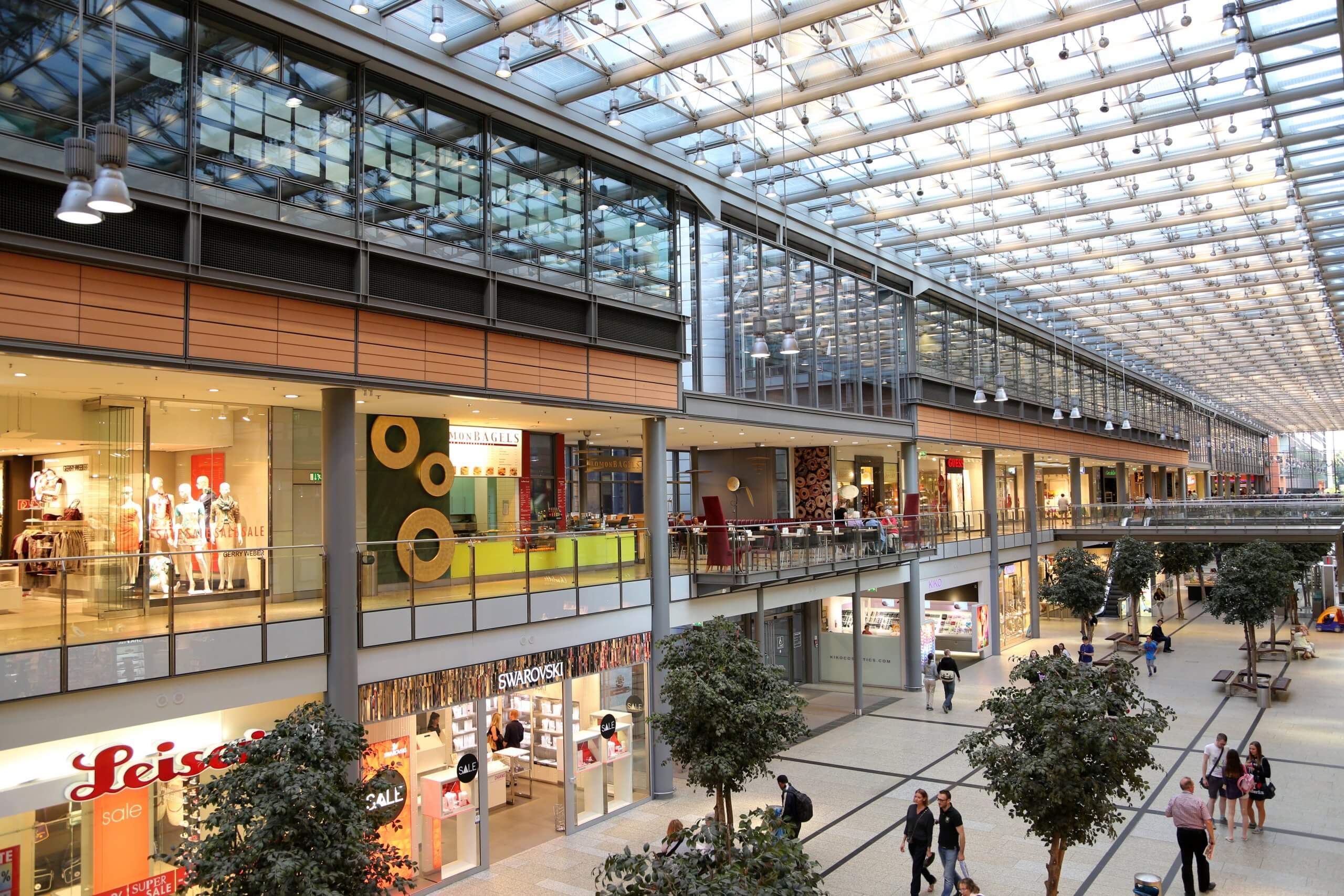We advocate for homeowners across the nation and aim to inform everyone on the importance of their indoor air. We strive to help you ensure healthier indoor air quality at home. However, championing and discussing better indoor air quality includes all indoor spaces, like public and commercial buildings. Perhaps you are a business owner, an employee that works in an office or someone who frequents public spaces. Regardless, it is important to understand that indoor air quality solutions are for residential and commercial buildings. Those working in studios, grocery stores and factories should not have to settle for poor indoor air quality. It’s time to make commercial air filtration a priority.
How Do Residential and Commercial Air Filters Differ?
There are a number of differences between residential and commercial air filters including size, capacity and type. Also, each factor impacts building air filtration in a different way.
Filter Size
It is no secret that commercial spaces are larger than residential structures. Due to their size, commercial buildings are responsible for filtering more air than residential buildings. In order to filter all of this air, they require larger air filters and a greater number of system filters.
Capacity
Commercial buildings require air filters with a higher MERV rating than residential buildings for noticeable improved indoor air quality. This is due to the fact that commercial buildings have more occupants than residential buildings and they are typically located in industrial areas which experience a higher volume of air pollution. Buildings, offices and commercial spaces also have HVAC systems that can accommodate higher-rated filters—possibly even HEPA filters.
 Home Air Filter: HEPA level filtration is possible for commercial buildings, but not usually an option for residential spaces. The differences between MERV and HEPA and why HEPA is too much for the average home system. Read more →
Home Air Filter: HEPA level filtration is possible for commercial buildings, but not usually an option for residential spaces. The differences between MERV and HEPA and why HEPA is too much for the average home system. Read more →Disposable vs. Washable
While both disposable and washable air filters are an option for residential buildings, commercial buildings are better served by disposable air filters. Washable filters have a low MERV rating and are subject to mold and mildew when installed because they can take time to fully dry after a wash. And considering commercial buildings likely replace air filters more frequently than residential buildings, disposable air filters are the better choice. Similar to home air filters, the higher the MERV rating, the fewer filter changes required throughout the year!
What MERV Rating Is Best for Commercial Buildings?
When choosing an air filter for a commercial space, it’s important to choose one with an appropriate MERV rating. However, in order to do so, you should consider several factors.
Building Pressure
Ideally, the pressure inside a building is higher than the pressure outside. This prevents air from flowing inside the building through openings in the building envelope. (In short, a building envelope is a physical barrier between the interior and exterior of a structure.) When choosing a MERV rating, it is important to consider building pressurization and whether or not the building envelope is airtight. A commercial building with insufficient pressurization and several openings in the envelope requires an air filter with a higher MERV rating pollutant-wise but might notice increased utility costs. This is why consulting with a contractor to find the best filter rating for your specific indoor space is critical.
Filter Cost
All businesses are concerned about finances, thus making the installation and maintenance costs an important factor. Higher-rated MERV filters cost more initially than air filters with a lower MERV rating. However, this is more likely noticed by a homeowner as opposed to a business. Regardless, the cost-savings and long-term improved IAQ are well worth the initial purchase price.
Another factor to consider is whether your business has in-house maintenance services or outsources to an HVAC contractor. In-house maintenance makes filter checks and changes easy and well worth the filter price. If your company or facility contracts with an expert, ask them about financing options and ongoing maintenance plans that can lower the overall annual HVAC budget.
Air Pollutants
In order to choose the appropriate MERV rating, make sure to consider specific air pollutants of concern. Is the building located in an area with increased levels of particulate matter, ground-level ozone or carbon monoxide? Depending on your business or building activities, certain pollutants might require a higher-rated filter.
Installation
Before installing a new air filter, the HVAC system should be inspected for issues such as current filter bypass problems. It is useless to install a new air filter if the air moves around the filter instead of through the filter. It is also important to install the air filter properly. If the air filter is installed improperly, it will not capture air pollutants and is useless once more.
 HVAC Contractor: Looking for someone to install a high-efficiency air filter in your business or building facility? Or maybe you simply want a personal consult to find the best filter for your space? Finding an HVAC contractor with IAQ expertise is key →
HVAC Contractor: Looking for someone to install a high-efficiency air filter in your business or building facility? Or maybe you simply want a personal consult to find the best filter for your space? Finding an HVAC contractor with IAQ expertise is key →When choosing an air filter for a residential building, it is also important to choose one with an appropriate MERV rating. However, the factors for a home filter are quite different from those for a building filter. When it comes to your home, consider things like pets, occupants that suffer from allergies or asthma, occupants that smoke and the number of occupants in your home to help determine the appropriate MERV rating. Why? Well, a MERV 13 air filter is better equipped than a MERV 4 air filter to handle dander, allergens, smoke and other air pollutants present in residential buildings and dependent on the aforementioned factors.
How Often Should You Change Commercial Air Filters?
How often you should change a commercial air filter depends on the nature of the business and the type of air filter being used. In a controlled indoor environment, like an office, a high-efficiency air filter likely only changes twice a year. In a more unpredictable environment, such as a hobby store or medical facility, air filters likely need replacing more often. Generally, commercial buildings have helpful maintenance sensors that inform how often to replace air filters.
On the other hand, you should replace residential air filters according to whether occupants have allergies and asthma, pets, filter MERV rating and the type of air filter being used. Again, similar to commercial air filtration, home air filters with higher MERV ratings can go longer in between changes.
Better Indoor Air Quality for All
There are several notable differences between residential and commercial air filtration. Fortunately, we are here to support both residential and commercial building owners and occupants by providing helpful insight and quality HVAC expert recommendations. Let’s improve indoor air quality for all, one air filter at a time.



